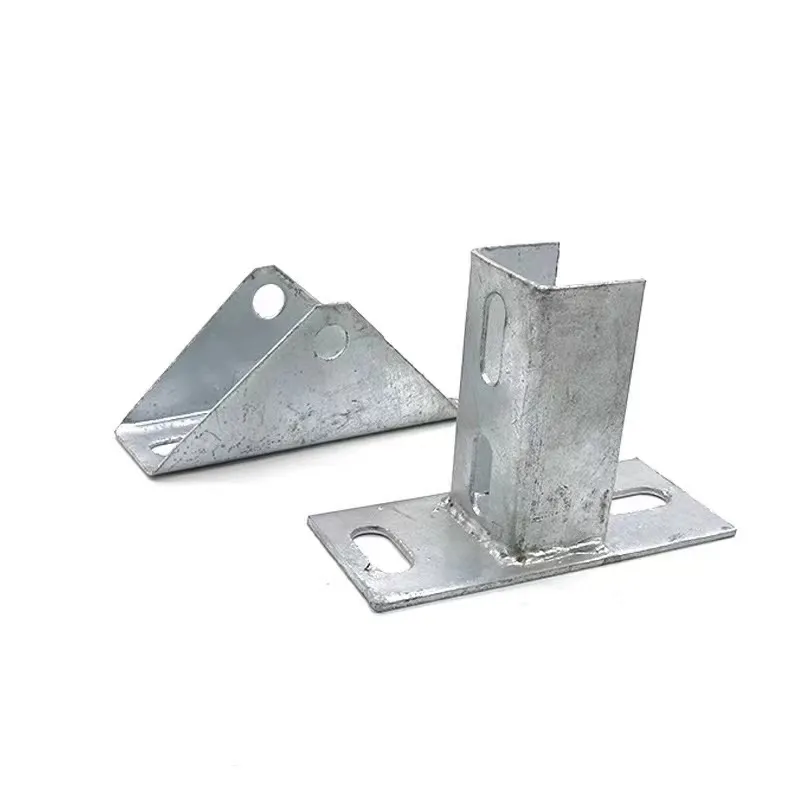

different types of nuts and bolts
Nov . 12, 2024 15:37 Back to list
different types of nuts and bolts
Different Types of Nuts and Bolts An Overview
Nuts and bolts are fundamental components in the realm of construction, manufacturing, and assembly. They come in various shapes, sizes, and materials, each designed for specific applications to ensure strength, stability, and reliability in structures and machinery. Understanding the different types of nuts and bolts available can help in selecting the right components for any project.
What are Nuts and Bolts?
In mechanical terms, a bolt is a fastener with a head on one end and a screw thread on the other, which is typically designed to be used with a nut. A nut, on the other hand, is a hexagonal block with a central hole that has internal threads, allowing it to be screwed onto a bolt to secure materials together. The combination of nuts and bolts forms a strong mechanical connection that can hold together a variety of materials.
Common Types of Bolts
1. Hex Bolts One of the most commonly used types, hex bolts have a hexagonal head designed for wrench tightening. They're ideal for heavy-duty applications such as machinery assembly, construction, and automotive use.
2. Carriage Bolts These bolts have a rounded head and a square section below the head which prevents the bolt from turning when tightened. Carriage bolts are often used in wood-to-wood connections and in metal fastening applications.
3. Lag Bolts Also known as lag screws, these are heavy-duty bolts with a sharp tip and coarse threads designed for heavy wood applications. Commonly found in timber framing and outdoor structures, they provide substantial grip.
4. Machine Bolts Typically used in machinery and appliance construction, machine bolts have a smooth shank and are used with a nut and washer. They can be found in various sizes and lengths to suit different applications.
5. Shoulder Bolts These bolts have a cylindrical shoulder between the head and the threaded portion. They are ideal for applications where pivoting or rotating motion is required, such as in specialized machinery.
Common Types of Nuts
1. Hex Nuts Like hex bolts, hex nuts are widely used and have a hexagonal shape. They are designed to be tightened with a wrench and are available in various grades based on the strength requirements.
different types of nuts and bolts

2. Lock Nuts These nuts are designed to resist loosening under vibration. They come in several forms, such as nylon insert lock nuts (which have a nylon ring that grips the bolt thread) and serrated flange nuts (which have teeth that bite into the assembly surface).
3. Wing Nuts Easily tightened by hand, wing nuts have two protruding “wings” for manual adjustment. They are often used in applications where frequent adjustments are necessary, such as on tool and equipment assemblies.
4. Cap Nuts These nuts have a closed end and are used to cover exposed threads, providing a cleaner appearance while protecting the threads from damage and corrosion.
5. T-Nuts Used primarily in wood applications, T-nuts have a T shaped body that slots into the wood to provide a strong connection point for screw fixation.
Materials
Nuts and bolts are made from various materials, each selected based on the required strength and environmental conditions. Common materials include
- Steel Most boloes and nuts are made of carbon steel, providing a good balance of strength and cost-efficiency. Steel can be treated with zinc plating for corrosion resistance.
- Stainless Steel Known for its excellent corrosion resistance, stainless steel nuts and bolts are commonly used in marine environments and applications requiring cleanliness, such as in food processing.
- Aluminum Lightweight and resistant to corrosion, aluminum bolts and nuts are typically used in aerospace and automotive applications where weight savings are critical.
- Plastic In certain applications, such as electrical components, plastic nuts and bolts may be employed to prevent electrical conduction or to reduce weight.
Conclusion
Choosing the right type of nuts and bolts is crucial for any project, as the strength, durability, and functionality can heavily depend on the fasteners' characteristics. By understanding the different types available, along with their materials and uses, one can make informed choices that ensure the integrity and performance of assemblies in various industries. Whether in construction, manufacturing, or DIY projects, the appropriate nuts and bolts form the foundation of sturdy and reliable connections.
Latest news
-
Hot Dip Galvanized Bolts-About LongZe|High Strength, Corrosion Resistance
NewsJul.30,2025
-
High-Strength Hot Dip Galvanized Bolts - Hebei Longze | Corrosion Resistance, Customization
NewsJul.30,2025
-
Hot Dip Galvanized Bolts-Hebei Longze|Corrosion Resistance&High Strength
NewsJul.30,2025
-
High-Strength Hot-Dip Galvanized Bolts-Hebei Longze|Corrosion Resistance&High Strength
NewsJul.30,2025
-
Hot Dip Galvanized Bolts-Hebei Longze|Corrosion Resistance&High Strength
NewsJul.30,2025
-
Hot Dip Galvanized Bolts - Hebei Longze | Corrosion Resistance, High Strength
NewsJul.30,2025

